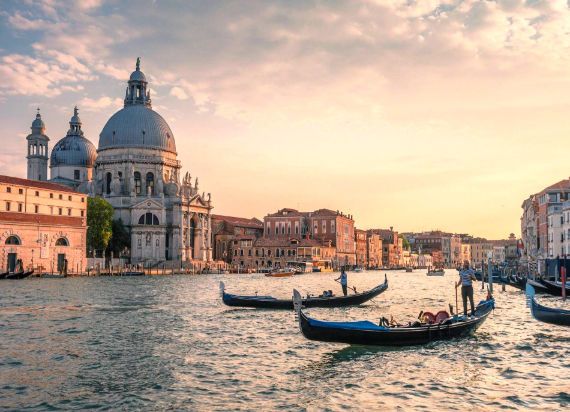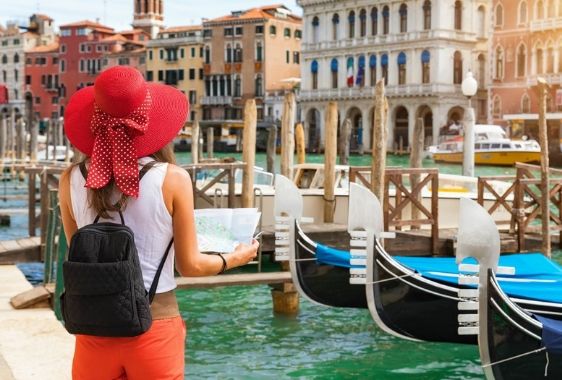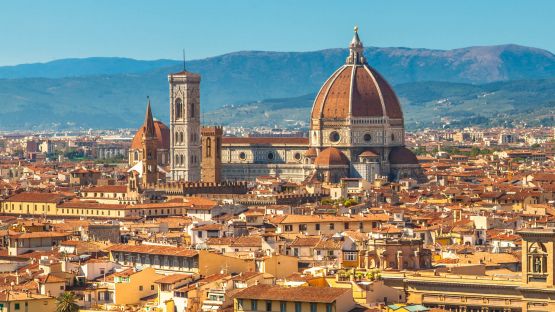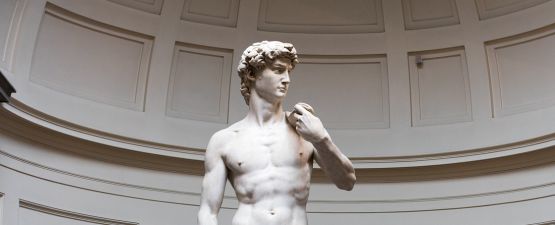Best known for his sculptures – David and Pieta and of course, the paintings which adorn the ceilings of the Sistine Chapel.
His story is just as fascinating as the work he produced. Here, in our blog, we share the history of his life with you – a story that we, Avventure Bellissime – the Italian tours specialist - just love to bring to life in our tours of Rome and Florence. Be sure to join us on our tours of Italian cultural highlights during your Italian holidays.
The early years
Michelangelo di Lodovico Buonarroti Simoni was born in Caprese, Italy in 1475. His family were bankers – a profession that’s a million miles away from the painter, sculptor, architect and poet that he later became.
Early exposure to stonecutting
The family later moved to Florence – one of Italy’s most important cities, and one that should definitely be on your itinerary during a holiday in Italy.During his childhood, Michelangelo was placed with a family of stonecutters because his mother had become ill and his father was presumably working, so they helped look after him. He later acknowledged that his early exposure to stonecutting might have had something to do with his artistic path.
Michelangelo the apprentice
His father was open minded enough to know, even at an early age, that his son wasn’t going to follow him into the banking profession. So, he agreed to let him be an apprentice to a Florentine painter’s workshop at the tender age of 13.
Classical sculpture studies with the powerful Medici family
Michelangelo spent a year at the painter’s workshop before moving to study classical sculpture in Medici gardens in 1489 until 1492.
It was here where he studied under the respected sculptor Bertoldo do Giovanni, and under his stewardship he mixed with poets and scholars within Florentine society.
His big break came from duping a cardinal
Michelangelo perhaps got his big break by duping a cardinal. Although it has to be said that he did not do that directly. Around 1495, after a brief period in Bologna, he created his ‘Cupid’ sculpture. An agent had made it look like an antique, and
this ‘antique’ caught the eye of Cardinal Riario of San Giorgio. When he realised it wasn’t an antique piece of art, he demanded his money back. However, when he found it had been created by a 20 year old young man called Michelangelo, he was impressed and invited him to Rome. (Incidentally, Michelangelo got to keep the payment, too!).
The Rome years
In Rome, he created the famous ‘Pieta’ sculpture – which is an image of the Virgin Mary holding the body of Jesus. It now stands in St Peter’s Basilica, which you can explore in full with a tour from Avventure Bellissime.
Michelangelo’s David
It was after this that he returned to Florence to complete ‘David’ – a sculpture that had already been abandoned by two other sculptors. Michelangelo’s David is an example of his distinctive ‘muscular’ style. This is perhaps something that was developed by his study of corpses. It was originally destined to stand in Florence Cathedral, but instead was unveiled outside the seat of civic government in Florence. This may have been because David represented the defence of civil liberties. Join us, Avventure Bellissime - the Italian tour experts – during your holiday in Florence, to survey David by Michelangelo, in his current home in Galleria dell’Accademia and learn more about his creation.
Commissions
After David was unveiled, commissions followed for Michelangelo. The most famous was the invitation to decorate the ceiling of the Sistine Chapel. Like David and the Pieta, this is something that will take your breath away when you see it with your own eyes. With Avventure Bellissime, you can tour the Sistine Chapel with ‘skip the line tickets’, and learn about the fascinating story:
- How the plan to paint 12 apostles became a painting involving 300 figures!
- How the work had to be removed soon after it was completed because of a fungus in the plaster.
- How Michelangelo recreated it again – alone – after sacking all his assistants.
- And how he spent years on his back painting every last detail.














Comments